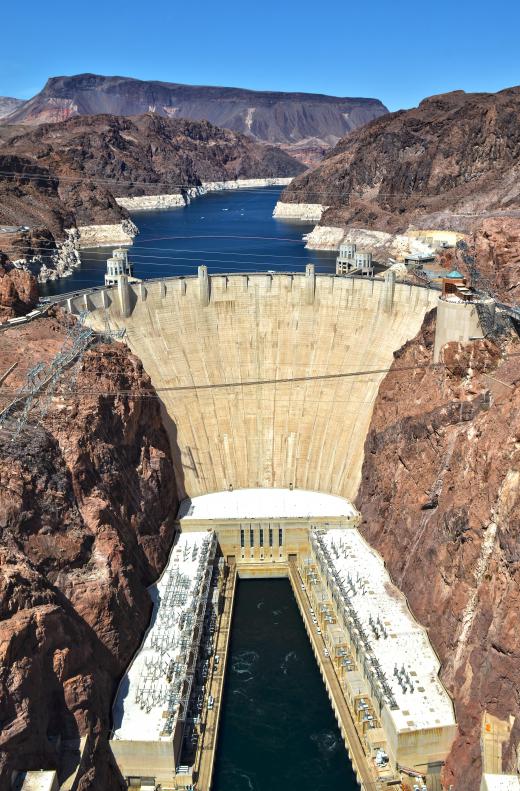What is Hydrology?
 Mary McMahon
Mary McMahon
Hydrology is the study of water on Earth. Hydrologists look at the properties of water, the ways in which it is distributed, and the effects of water on the Earth's surface, with a goal of understanding the complex and interconnected systems which dictate life on Earth. This field does not generally include the world's oceans; rather, they are studied by oceanographers, although a hydrologist may sometimes be asked to analyze water samples from the ocean.
As you might imagine, hydrology has a number of applications. Hydrologists work on flood control programs, irrigation schemes, and hydroelectric power generation plans. They also research water for both domestic and industrial supply, and they often make up part of a team on projects ranging from construction of skyscrapers to pollution remediation. Many hydrologists choose a unique area of focus in their work, becoming specialists on issues like groundwater contamination and river flow.

This field is also quite ancient. Thousands of years before the birth of Christ, humans were harnessing water to irrigate crops and provide energy for tasks like milling grains. The study of hydrology in some form or another was also vital for people living in low-lying, flood-prone areas, allowing them to take steps to reduce the risk of flooding and to potentially predict it. One of the most ambitious hydrology schemes of all time, the Roman Aqueduct, was built around 300 BCE to supply the city of Rome with running water.

In the course of his or her training, a hydrologist studies a wide range of fields including chemistry, geology, soil science, and engineering. Depending on what the hydrologist's focus is, studies in fields like policy and planning may be involved as well, as hydrologists are often called on to inspect land before it can be built on, and to work on schemes which are designed to provide communities, businesses, and farms with usable water.

A major focus in the study of hydrology is the hydrosphere, the series of interconnected water systems on Earth. Activity in the hydrosphere causes water to constantly circulate in a process called the hydrologic cycle. The hydrologic cycle moves water through the ground, along the surface of the Earth, and in the sky, retooling water molecules for new purposes on a daily basis. The water you drink, for example, might have been drunk by another human or animal at some point in its history, and it may have sat for centuries locked deep in the ground or it might have landed in your reservoir with a batch of rain last week. The study of this cycle and the things which interrupt it is a major cornerstone of the field of hydrology, as you might well imagine.
AS FEATURED ON:
AS FEATURED ON:















Discuss this Article
Post your comments